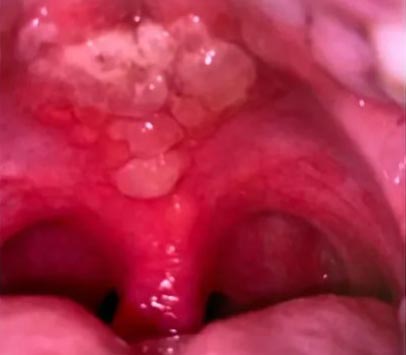Nikhil Prasad Fact checked by:Thailand Medical News Team Aug 06, 2024 8 months, 1 week, 4 days, 20 hours, 24 minutes ago
COVID-19 News: COVID-19 is well-known for causing respiratory issues, but did you know it can also cause painful mouth ulcers? A recent case report highlights this surprising and painful manifestation of the virus in a teenage patient. This
COVID-19 News report will dive into the details of the case reported by doctors and dentists from the Ohio State University-USA and Nationwide Children’s Hospital, Ohio-USA and what it means for understanding COVID-19's impact on the body.
 Ohio case report shows that COVID-19 can also cause painful oral lesions
Introduction: COVID-19's Unexpected Symptom
Ohio case report shows that COVID-19 can also cause painful oral lesions
Introduction: COVID-19's Unexpected Symptom
When we think of COVID-19, symptoms like fever, cough, and difficulty breathing come to mind. However, it turns out the virus can also lead to painful mouth ulcers. This new case report, which is the focus of this article, adds to our understanding of COVID-19's diverse symptoms and highlights the importance of recognizing less common manifestations.
The Case of a Teenager with Severe Mouth Pain
A 15-year-old boy, previously healthy, was diagnosed with COVID-19 after experiencing fever, cough, and congestion. This diagnosis was confirmed through a reverse transcription polymerase chain reaction (RT-PCR) test. He was not vaccinated against COVID-19 and had no significant medical history aside from an allergy to bee venom. Initially, he was treated with prednisone and azithromycin for his respiratory symptoms.
Eight days after his diagnosis, the teenager began to develop painful mouth sores, starting on the soft palate and spreading to his lips. Despite receiving nystatin and Magic Mouthwash, his condition worsened. He was eventually admitted to a children's hospital due to severe oral pain, inability to eat, and significant weight loss.
Detailed Examination and Treatment
Upon examination, doctors found erosive, yellowish ulcers on his lips and mouth, along with numerous fluid-filled vesicular lesions on his soft palate. Tests ruled out other common respiratory infections and conditions like Stevens-Johnson Syndrome and herpetic gingivostomatitis. The medical team diagnosed him with reactive infectious mucocutaneous eruption (RIME) secondary to COVID-19, a condition where the body's immune response to an infection causes severe skin and mucosal inflammation.
The teenager was treated with intravenous steroids, pain management medications, and nutritional support, including intravenous dextrose and liquid nutrition supplements. Dental wax was used to protect his mouth from his orthodontic braces, which were exacerbating his pain.
Recovery and Ongoing Research
After several days of intensive treatment, the teenager's condition began to improve. By the time of his discharge, most of his oral lesions had healed, though some ulcers on his lower lip persisted. This case underscores the importance of interdisciplinary collaboration in managing complex COVID-19 symptoms. The medical and dental team
s worked together to provide comprehensive care, addressing both the underlying infection and the severe oral pain it caused.
Understanding RIME and COVID-19
RIME is typically associated with pathogens like Chlamydophila pneumoniae and various viruses, but its association with COVID-19 is becoming more recognized. This condition usually involves mucositis in multiple areas, including the mouth, eyes, and genitals, often accompanied by a rash. However, in this case, the lesions were confined to the mouth.
The exact mechanism of RIME involves an immune response where antibodies produced during infection form complexes that deposit in tissues, leading to inflammation and damage. This immune reaction can cause significant discomfort and requires careful management to alleviate symptoms.
Conclusion: Implications for Healthcare
This case report provides valuable insights into the varied presentations of COVID-19 and the importance of considering the virus as a potential cause of unusual symptoms like painful oral ulcers. It highlights the need for healthcare providers to be aware of and prepared to manage these less common manifestations of the virus.
Recognizing the diverse ways COVID-19 can affect patients is crucial for providing appropriate care. In this case, the successful treatment involved a combination of antiviral, antifungal, and anti-inflammatory medications, along with supportive care to manage pain and nutritional needs.
The study findings were published in the peer-reviewed journal: Frontiers in Dental Medicine.
https://www.frontiersin.org/journals/dental-medicine/articles/10.3389/fdmed.2024.1412439/full
For the latest
COVID-19 News, keep on logging to Thailand Medical News.
Read Also:
https://www.thailandmedical.news/news/covid-19-also-causes-unilateral-parotitis-especially-in-children
https://www.thailandmedical.news/news/sars-cov-2-is-able-to-directly-infect-and-damage-tongue-tissues
